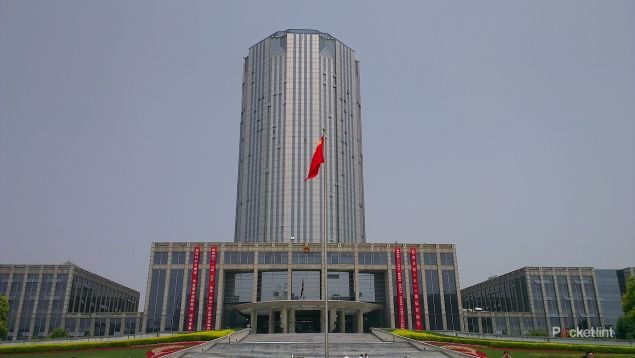"By 2015 China will have more than 650 million people connected and online.” These were the words of HP's CEO Meg Whitman at the company’s recent conference in Shanghai.
“China is just below the worldwide average at about 200 PCs per 1000,” one in five with a computer, if you want to look at it more sensibly.
As emerging markets go, it seems that China has well and truly now emerged. All the telltale signs are there, from Apple’s vast store in Shanghai to the wall-to-wall adverts for mobile phones and laptops all backed by department stores and shopping malls devoted entirely to technology.
All that demand is forcing companies to reconsider their approach. Once it was the Asian nations, such as Japan, designing products with a Western market in mind. Now, it’s the Western-owned companies looking to to service China with their hardware.
HP's CEO explained that China was well and truly on her radar when it came to product research and development. The company has a huge presence there with one of its most significant facilities, second only to that of the US, based in China.
They aren't the only ones either. Take Foxconn, Apple's ever-talked-about manufacturer. Foxconn employs a staff of approximately 1.2 million to keep consumers' insatiable demand for iPhones and iPads sorted, as well as other products.
All across China the numbers continue to grow. PC adoption and internet availability, in particular, is increasing at an astonishing rate. Just as Sony rose from nowhere to release some of the most iconic pieces of consumer tech in history, the same could be inbound from any number of Chinese tech companies with the likes of Asus, Huawei and ZTE at the forefront. And how about some you haven’t even heard of yet - like Meizu and its MX smartphone.
The Chinese gadget market demands cutting-edge technology, just like the Western one. The difference is that, rather than importing it, a lot of Chinese manufacturers are producing it themselves. The MX is no slouch either. It packs a 4-inch qHD screen, an 8-megapixel camera and a 1700 mAh battery - all specifications you would expect to see in a flagship piece of kit on the high street. Currently there is a dual-core version of the handset out on the shelves but a quad-core MX is set for release in June.
And Meizu isn’t alone. ZTE might be relatively small in Europe but is actually a vast smartphone manufacturer with a bigger market share than Apple globally. The company manages just under 5 per cent of the world market share of mobile phones and is predicting a doubling of sales in 2012 with the United States aimed as its primary point of sale by 2015.
Korea is, of course, also a hot topic for smartphones and televisions. Samsung and LG have run an aggressive takeover of that market from the likes of Sony and Toshiba. So how does China shape up against them?
The first manufacturer that springs to mind is Lenovo. Originating in Beijing’s Zhongguancun district, the Chinese equivalent to Silicon Valley, it has rapidly established itself in the laptop market, even acquiring IBM’s PC business in 2005. In China, Lenovo Mobile ranks third in terms of unit share in the smartphone market, and that’s a bigger deal than it sounds when you consider the country has a roughly 1.3 billion population.
Still though, in terms of the West, it’s Samsung that dominates. The Korean giant overtook Sony in 2005 as one the most popular consumer electronics brands in the world. It’s now ranked number 19 and sits ahead of Apple in terms of smartphone manufacture.
So, China still has a fair way to go if it is to conquer the traditional technology giants. With the likes of Foxconn, the huge manufacture bases, the infrastructure and the traditions in factory work, the conditions are all there for the country to begin to dominate consumer demand. Similarly, if companies on the scale of HP are viewing China as number one priority for product investment and sales, then the future looks set in stone.
We might not know what the next big thing will be in the technology world but, whatever it is, you can pretty much guarantee it will involve China.
- Waldorf Astoria, Shanghai: the ultimate gadget hotel

